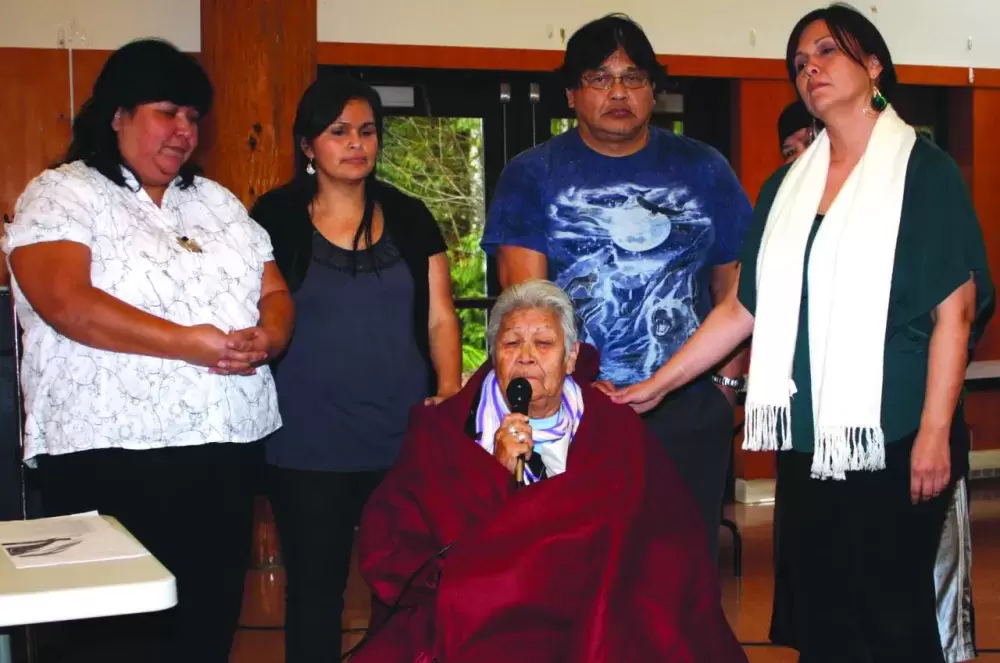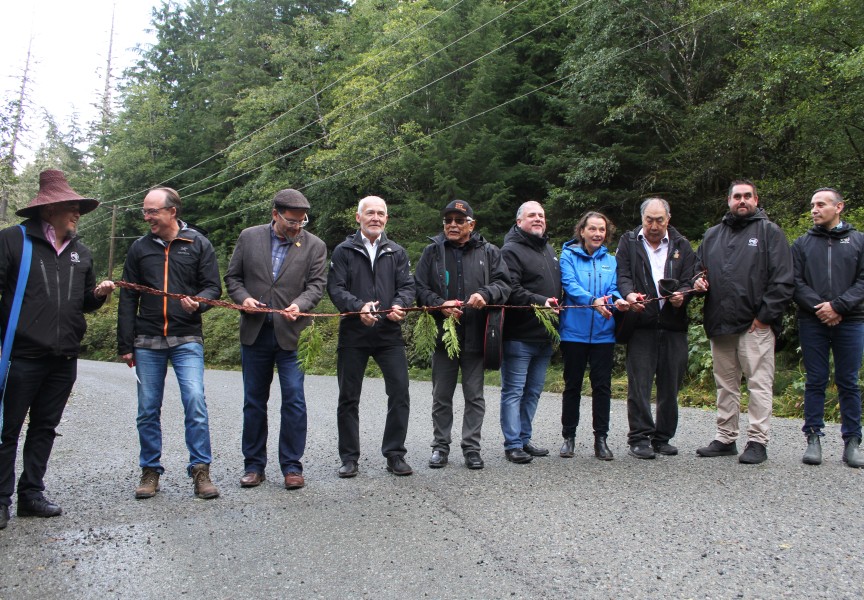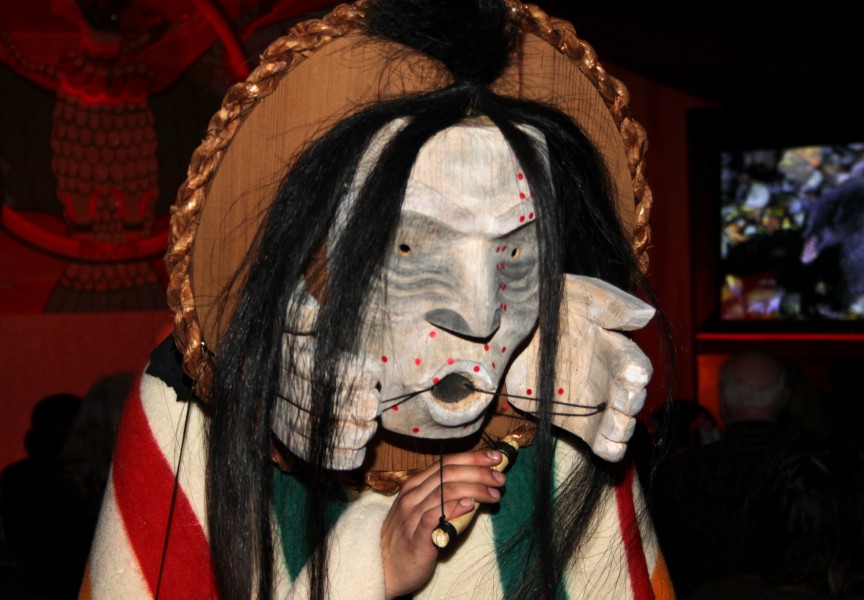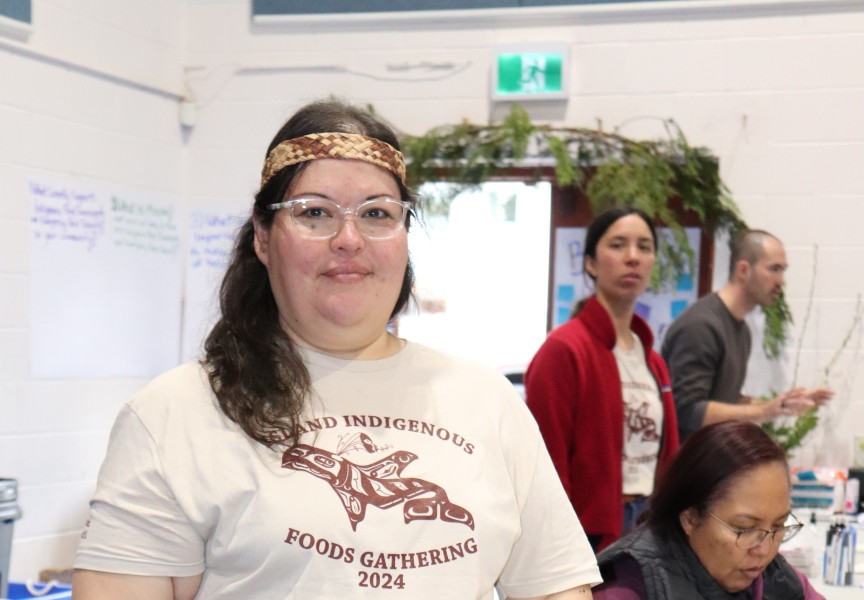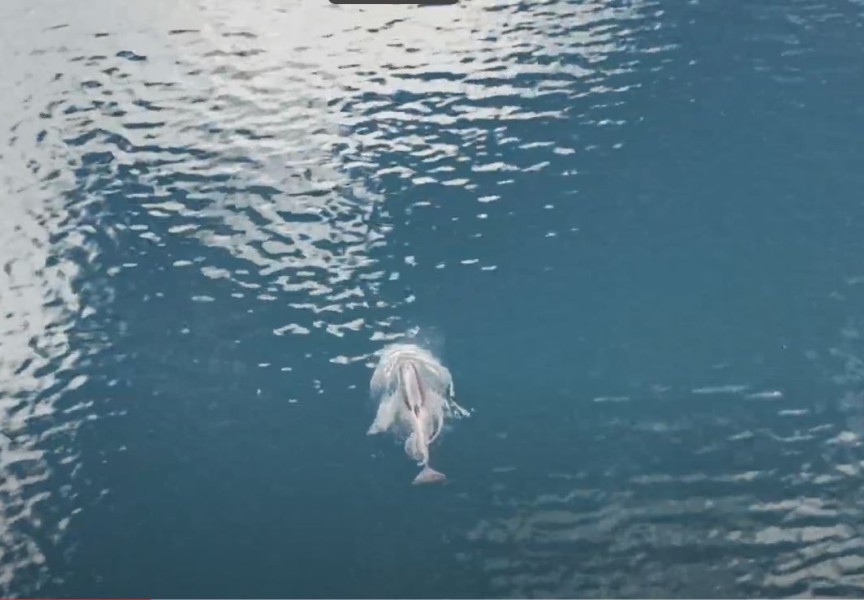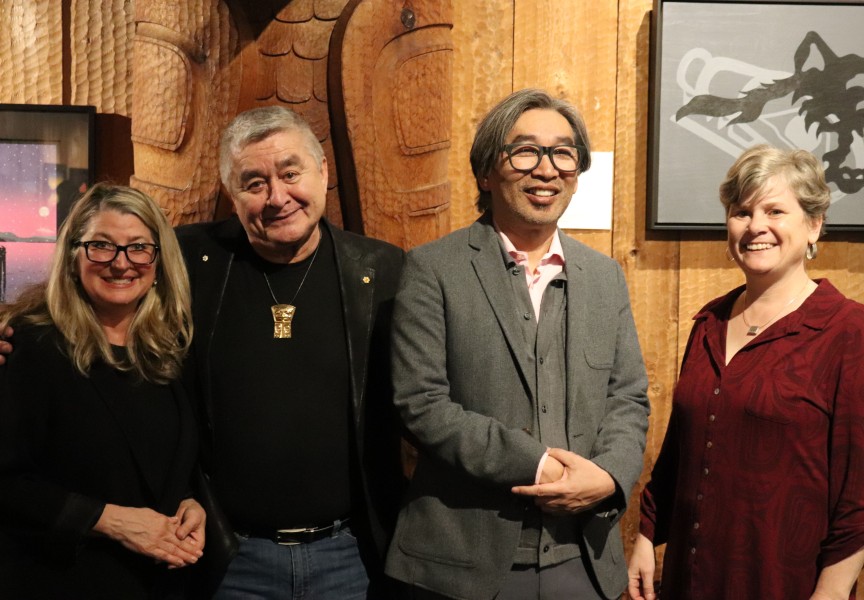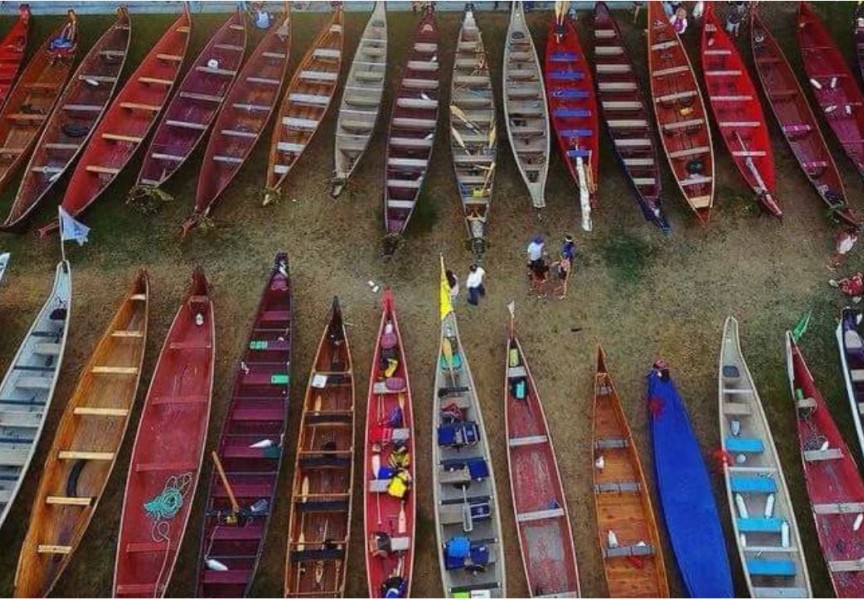More than 60 people arrived at the Hupacasath House of Gathering Jan. 20 to hear updated information about residential school compensation for former students and to hear about available healing resources.
In her welcome and opening comments, Hupacasath Chief Shaunee Casavant offered words of encouragement to survivors and their descendants. She said many had their heads filled with negative thoughts about themselves when they were children and she urged them to learn the truth and know that they are strong, beautiful, intelligent people.
Jacqueline Watts followed up with an opening prayer in both English and the Nuu-chah-nulth language, followed by a Tseshaht welcome song.
Quu%asa Counsellor Kim Rai introduced the Quu%asa team saying they would be available to offer support, including brushings and counselling from Nuu-chah-nulth trained counsellors for the duration of the meeting.
Janis Libby and Sheila Nyman, resolution health support workers from Tsow-Tun Le Lum, presented information about the Independent Assessment Process (IAP).
Nyman talked about how the Indian Residential School Reconciliation process has changed over time, starting with the CEP (Common Experience Payment), where all former residential school students with successful claims received compensation according to what’s become known as the 10 and three formula. $10,000 for the first year of residential school and $3,000 for every other year in attendance.
“Then came the ADR (Alternative Dispute Resolution) designed to be an alternative to court,” said Libby, adding, “It is supposed to be gentler and quicker than court.”
According to Nyman, it was found that the IAP needed fixing; some things changed and some things were added. Some changes revolved around the Commemoration portion of the settlement agreement.
Nyman said $20 million has been allocated for Commemoration.
“The first thought was to build a monument in Ottawa, but what good would that do for the survivors?” she asked. Other ideas were brought up about how to commemorate former students and their families across Canada.
The first half of the Commemoration fund will be distributed this year and the deadline for applications is March 18. Nyman says there are no Nuu-chah-nulth applications so far. Each community may submit a proposal for a $50,000 Commemoration grant, or several communities may make a joint application for a grant up to $500,000.
The second half of the Commemoration Initiative will be dispersed in 2012/2013. Deadline for proposals has yet to be announced.
The Truth and Reconciliation Commission is hosting national events over the next couple of years across the country. The first was held in Winnipeg last year. The next will be held in Yellowknife in Spring, and in Halifax in fall. A national event is scheduled for Vancouver the following year. People involved in the residential school system, both students and others, put their experiences on the record at these events. Eventually, those experiences will be housed in at a national research centre.
The TRC is organizing a forum on creating that national research centre in Vancouver March 1 to 3. The forum will provide an opportunity for stakeholders to witness the beginning of what will become Canada’s largest permanent collection of oral history.
At the Jan. 20thmeeting however, the energy in the room switched to a feeling of anger and frustration as former students told how the process is not serving their needs. They shared stories about how some are not being compensated for all the years they went to residential school because of reasons beyond their control. Some attendance records have been lost or burned in many residential school fires.
Speaking for some of the elders that continue to fight for compensation in the absence of records, a man said, “they are told it is up to them to prove that they were there for all the years they claim even though it was Canadian law that forced them to be there and it was the institutions that failed to keep all of the records.”
Archie Little is grateful for the help and support he received as he went through the IAP. He said he would like to help others.
“It’s a difficult process,” he said, adding survivors are often not believed when they tell their stories.
For Tommy Curley, the IAP was especially difficult.
“Forty, fifty years of our lives waiting for something from these people that did things to us. They weren’t there to educate us; their main goal was to take the Indian out of me,” he charged.
Curley warned that the process is painful. Clearly agitated, he said that he was assured it wouldn’t be difficult to speak about his experiences without a support worker.
“But it was hard,” he said, adding he couldn’t finish and left the hearing in anger and frustration.
“And the last slap in the face is I didn’t even get half of what I was supposed to get, and that’s supposed to make me feel good? That’s b*** s**t!” he yelled.
Curley urged people going through the process to get a support worker to help them through it. He asked support workers to be more accessible. He said there are many low income and low education survivors who may have a hard time accessing the support.
“There’s people out there suffering who don’t have what we have,” he said.
Carol Lucas said people like her elderly father need help.
“It’s hard for them to ask for help. They don’t know how to ask for help,” she said. When they asked for help in residential school, she continued, they were made to feel stupid and have learned to be ashamed to ask for help.
Others complained about questionable practises of some lawyers. One man said he was assured the HST portion of his settlement would be paid by Canada, but his documents show his lawyer billed him an amount equal to the taxes and took payment from his settlement. Support workers promised to meet with him and help him.
Ray Williams is angry that lawyers even get 15 per cent of the settlements.
“It should be government’s responsibility to take care of the lawyers,” he said, adding, “They’re still taking away from us.”
Williams made a request, asking that support workers come to Yuquot to talk to him where he feels safe, at his home. Having lived in the isolated community all his life, he said some people are not comfortable dealing with these things in the city, far away from their comfort zones.
Hesquiaht elder Mamie Charleson tearfully accepted a gift after being applauded for accomplishing one year of sobriety. Charleson said her tears were ones of happiness. She said she went to treatment at the age of 80, adding it’s never too late to get help and it’s never too late to stop learning.
“You don’t stop learning until the day you die. I encourage young people to go treat yourselves while you’re still young, for your children,” she advised.
Guest speaker Lisa Charleson thanked her grandmother for keeping the family strong and united after all that they’ve been through in residential schools. A survivor herself, Charleson said she’s been working with the residential school process for a long time but left after burning out.
“It is probably the most challenging part of my life, walking with the survivors,” she said.
“We can get past this, but we have to come together and arm ourselves with knowledge because if we don’t have knowledge people can walk all over us,” Charleson said.
She said there is far too much work for the few support workers, adding there were only two resolution support workers for all of Vancouver Island when she was working.
“There’s lots of work, lots of people to serve and not enough support workers to do it so we did the best we could,” she said.
An important word of advice Charleson had to offer was that survivors should tell adjudicators that they will use the $10,000 future care funds so that it can be part of their settlement. Many miss out on this significant portion of the settlement, because they refuse it for whatever reason.
Charleson assures survivors that they can use the future care funds in any way they see fit once they have it. But if they have already received a settlement and didn’t claim it then, they can’t go back and ask for it.
The discussion moved to POI’s or Persons of Interest, which Charleson described as a hot button issue. POI’s are former students who have been named as abusers of fellow students in residential school. By law they must be notified that their names will be brought up in an IAP hearing.
Because the identities of POI’s are kept secret, support workers and the community don’t know who they are but they’re concerned for two reasons. They fear innocent people may be falsely accused of abuse. Also, they worry about the possible social repercussions like addictions and suicides.
Still, student-on-student abuse did happen and Charleson urged people not to turn their backs on these people. “It was systematic, these were children in most instances; a child that was abused will likely turn around and abuse others,” she reminded them.
“We survived a near genocide and we’re still here and we still have our culture,” she said. Charleson says she is confident Nuu-chah-nulth people will come up with a way to deal with this issue.
Con Charleson spoke about how unfair Canada is being to residential school survivors compared to others. He said he saw in the news the Canadian government paid white Catholic school student who suffered sexual abuse by those running the schools $1million each while First Nations are lucky to get $100,000.
Verna Jack raised the issue of the pain and suffering parents went through when their children were forcibly taken from them. For years Jack said she wondered why her parents let her go to residential school. She later learned her mother spent a lot of time in the woods crying for her children.
“The government had a lot of power over them. It wasn’t their fault. Can we please have something for the parents we still have here where we can come together in a circle and apologize and let them know it wasn’t their fault?” she asked.
“It’s time for us to start healing and take responsibility for ourselves. The residential schools have been closed long enough. If we don’t start healing we’re passing it on to our kids and grandchildren,” Archie Little warned.
The deadline to apply for the Common Experience Payment is Sept. 19, 2011 and deadline to apply for the IAP is Sept. 19, 2012.
For more information visit www.residentialschoolsettlement.ca or www.trc.ca or call 1-888-872-5554.

